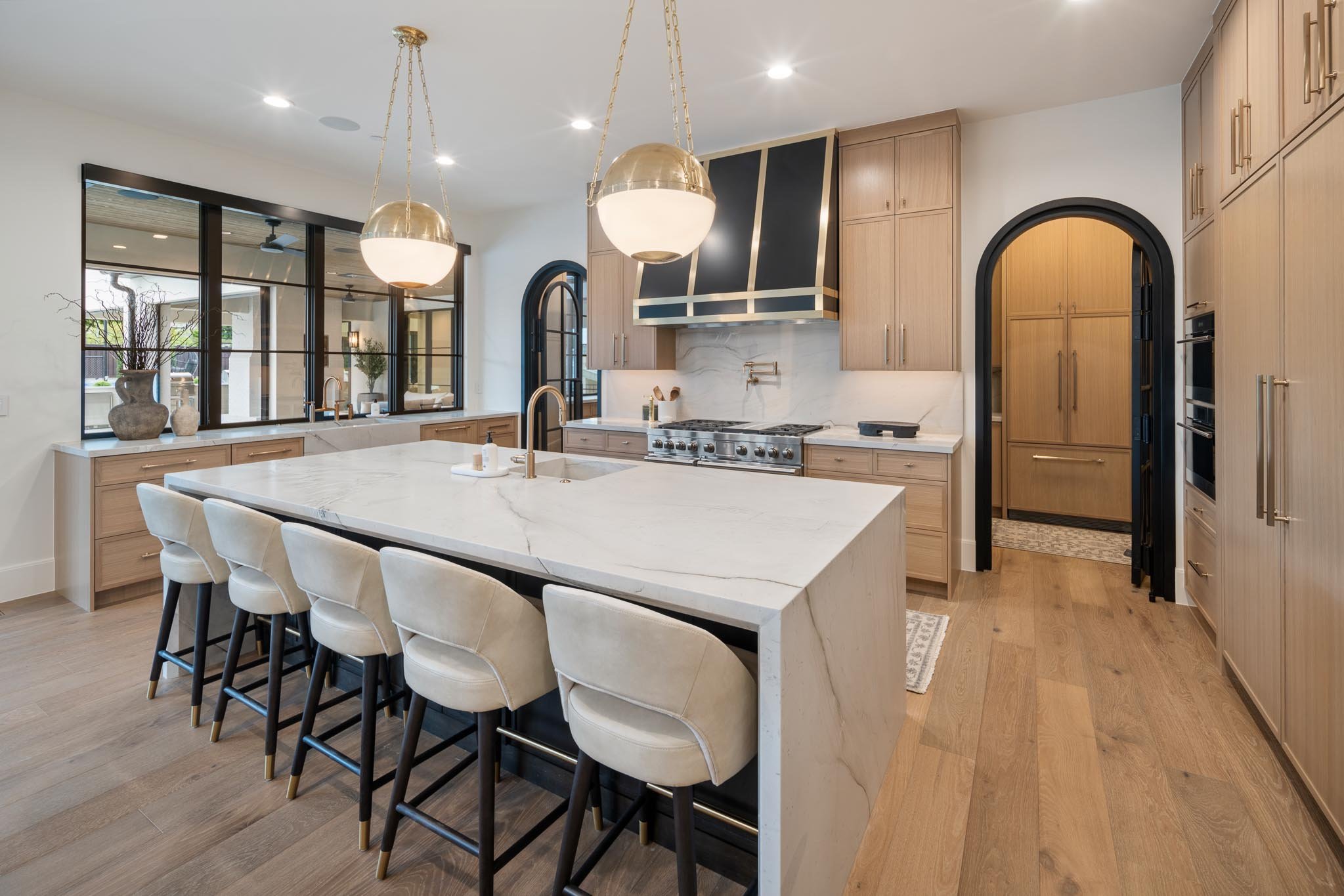
Home Buyer Concierge
HOW IT WORKS
At The Menser Real Estate Group, we offer a personalized and streamlined home-buying experience designed to make your journey as smooth and stress-free as possible. Our dedicated team will guide you through every step of the process, from the initial search to closing on your dream home. We’ll provide expert insights on neighborhoods, market conditions, and property values to ensure you make an informed decision.
Through our partnership with top local service providers, you’ll have access to vetted professionals, including mortgage lenders, inspectors, and contractors, ensuring you have trusted support at every stage. We offer a comprehensive suite of services that covers everything from setting up inspections, meeting with contractors, and recommending moving services, to ensure you’re fully prepared and supported throughout your home-buying journey.
We aim to remove the guesswork and provide you with a worry-free experience so you can focus on finding the right home while we handle the details. The Menser Real Estate Group’s Buyer Concierge Service is here to help you navigate the process with confidence and ease.
Buyer Resources
Ready to take the next step in your home buying journey? Click here to access our comprehensive buyer resources!
From step-by-step home buying guides and checklists to mortgage advice, calculators, and more – we’ve got everything you need to make informed decisions. Start planning your dream home purchase today!
Q&A
-
The first step is to get pre-approved for a mortgage. This helps determine your budget and shows sellers you're serious about buying. After pre-approval, you can begin your home search with confidence.
-
Pre-qualification is a quick estimate of how much you might be able to borrow based on basic financial information. Pre-approval is more thorough, involving credit checks and verification of income, assets, and debts, giving you a more accurate figure and a stronger position when making offers.
-
The typical down payment is 20%, but some loan programs allow as little as 3% down. First-time buyers may qualify for programs with even lower down payments. Keep in mind, a larger down payment can lower your monthly payments and reduce the need for private mortgage insurance (PMI).
-
The timeline varies depending on the market and your personal situation, but typically it takes between 30-60 days from making an offer to closing. The time frame includes getting pre-approved, searching for a home, making offers, and completing the escrow process.
-
Yes, having a buyer’s agent is highly recommended. They will help you navigate the home buying process, negotiate on your behalf, and make sure you get the best possible deal. Their commission is typically paid by the seller.
-
On average, a buyer's agent commission is around 2.5%-3% of the purchase price, but this amount is negotiable. Typically, the seller covers the cost of the buyer's agent as part of their closing expenses, as sellers want agents to bring their clients to see the home. However, in some cases, the buyer may be responsible for paying their agent directly. When this happens, it can impact the overall marketability of the property because fewer agents might show homes where their commission isn't covered by the seller, potentially driving the price down.
-
The intent of the new law was to allow more flexibility to homeowners and buyers as to who pays for Buyers Agent compensation. Sellers have always had the option to decide how much to offer the buyer's agent. The typical 2.5-3% commission became standard because anything lower often leads to fewer showings by agents. This commission is essentially a marketing expense to attract interest in the home. When sellers offer less than the standard rate, it can make it harder for buyers to afford their closing costs, especially when they're already covering a down payment and other expenses. The new law also requires agents to have Buyer-Broker agreements prior to showing homes to a potential home buyer.
-
No, you're not stuck with your agent. Most buyer-broker agreements allow for cancellation if you're not satisfied. Depending on the type of agreement—exclusive or non-exclusive—you can end the relationship immediately or within a set period. It's important to carefully review the agreement terms so you know your options, but you can always move on if the agent isn't the right fit for you. Take a look at our blog that explains this.
-
An earnest money deposit is a payment made to the seller as a show of good faith when you make an offer. This deposit is typically held in escrow and applied to your closing costs or down payment if your offer is accepted.
-
Your buyer's agent will help you assess whether a property is priced fairly by conducting a comparative market analysis (CMA). This compares similar homes in the area that have recently sold to give you a better idea of the property's value.
-
A home inspection is conducted by a licensed professional to check the property's condition. They will look for potential issues with the structure, roof, plumbing, electrical systems, and more. After the inspection, you’ll receive a detailed report outlining any problems that may need attention.
-
Yes, price negotiation is common in real estate transactions. Your buyer’s agent will help you make a competitive offer and negotiate terms with the seller to ensure you’re getting the best deal possible. A second round of negotiations is common following inspection findings as well.
-
Closing costs are fees associated with finalizing the sale of a home. They typically include loan origination fees, title insurance, appraisal fees, and more. Both the buyer and the seller may pay certain closing costs, but this can often be negotiated during the offer process. Take a look at our closing cost calculator.
-
If your offer has been accepted, you may still be able to back out of the deal, but it depends on the contingencies in your contract. Common contingencies include financing, home inspection, and appraisal contingencies, which protect your earnest money if something unexpected comes up.
-
In a competitive market, it’s important to act quickly and put your best offer forward. Your buyer’s agent can help by providing guidance on what sellers are looking for, whether it's a higher price, flexible closing dates, or fewer contingencies.
-
Once your offer is accepted, you’ll enter the escrow period. During this time, you’ll need to finalize your mortgage, complete a home inspection and appraisal, and review all necessary documents. Your agent will guide you through each step to ensure a smooth closing.
-
To avoid common mistakes, make sure you’re financially prepared, don’t skip the home inspection, and work closely with your buyer’s agent to ensure you fully understand the process. Be realistic about your budget and avoid making any major financial changes (like buying a car) before closing.
-
Yes, it’s possible to buy a new home before selling your current one, but it can be challenging financially. Some buyers use bridge loans, HELOCs (Home Equity Lines of Credit), or make a contingent offer, which means the purchase is dependent on selling your current home.
-
In addition to your down payment, you’ll need to budget for closing costs (typically 2-5% of the loan amount), home inspections, appraisals, and moving expenses. You may also need to pay for homeowner's insurance and, in some cases, private mortgage insurance (PMI). Take a look at our estimated closing cost calculator.



